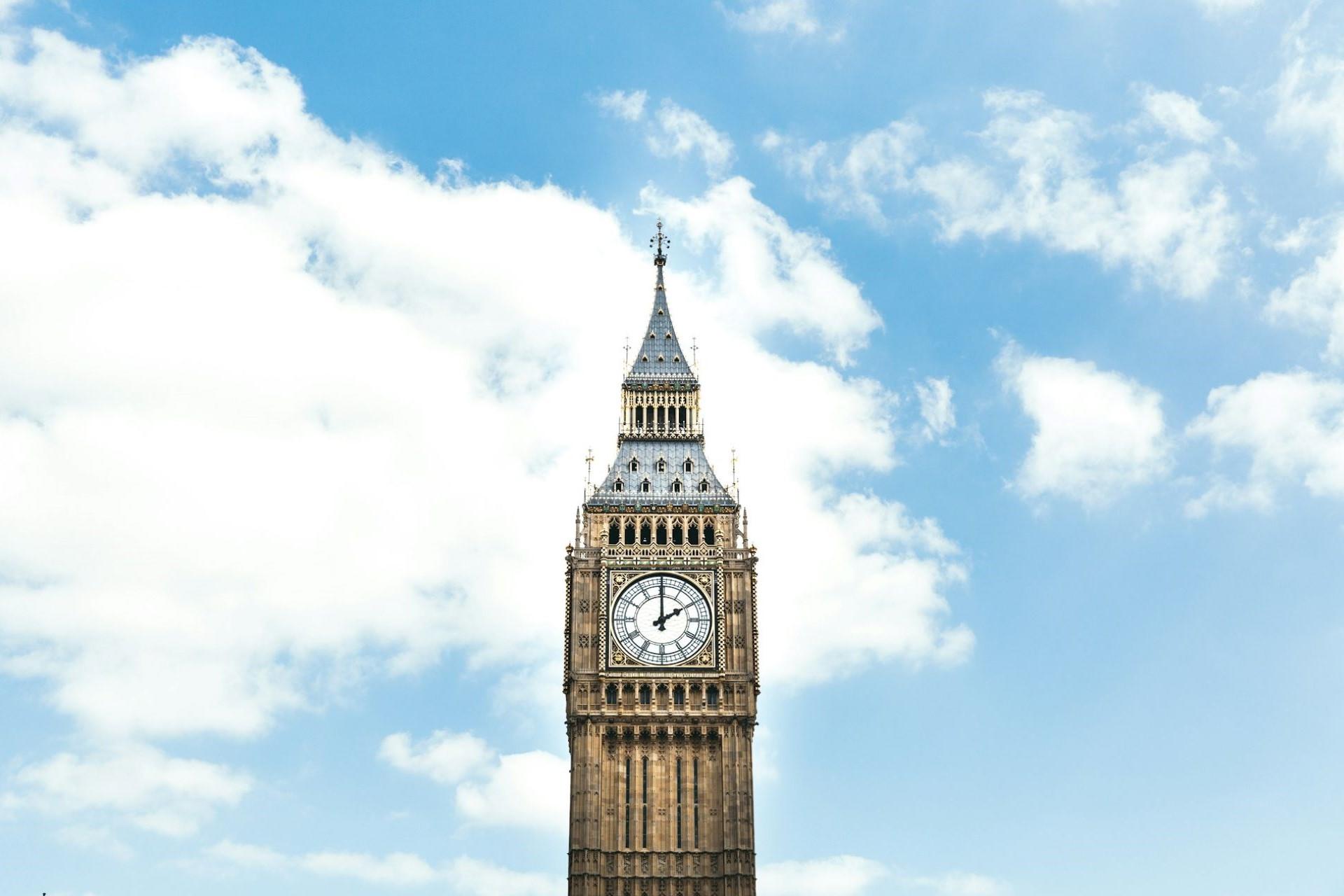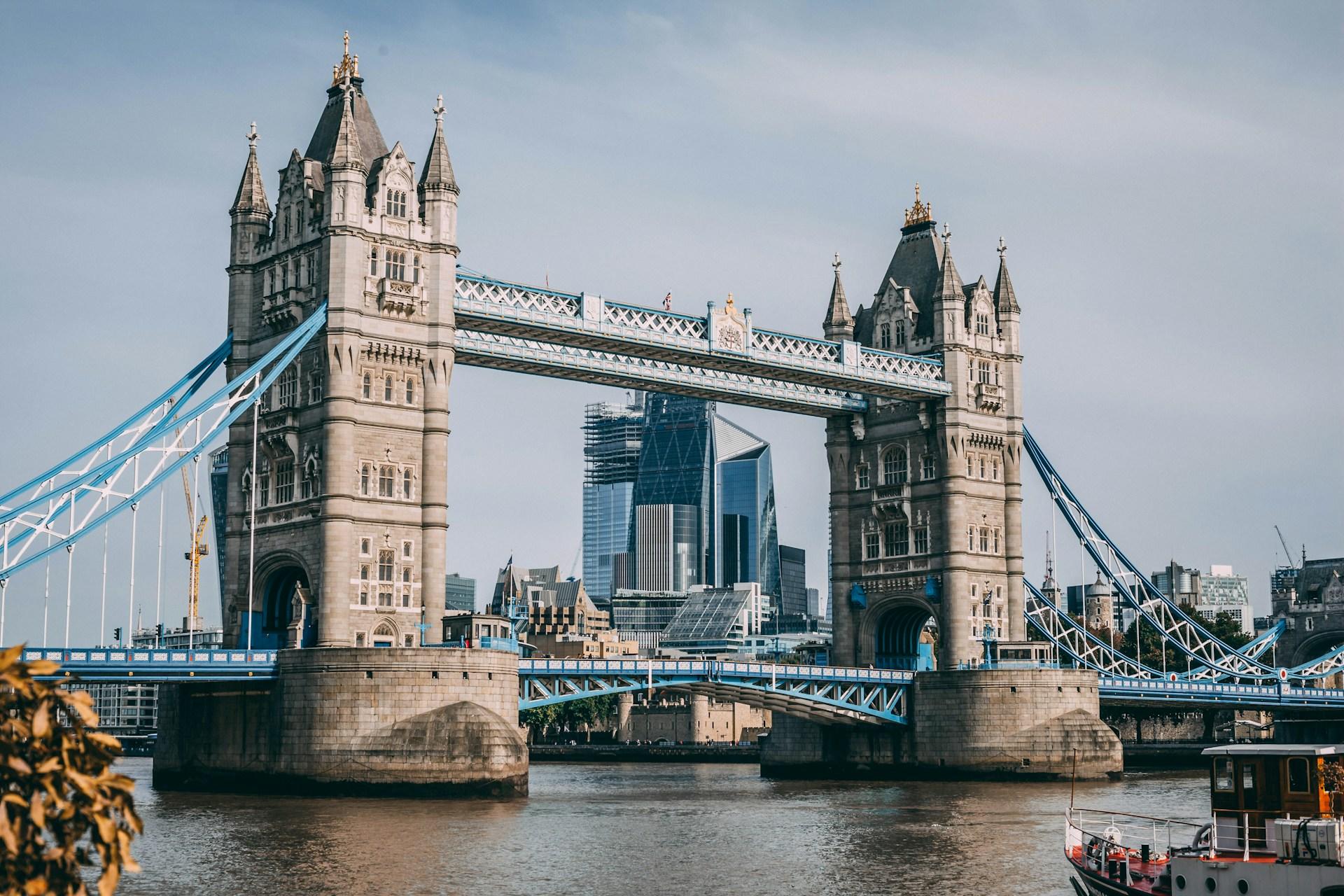Like many places in the UK, the people of London speak with a rich diversity of accents, each unique and fascinating. Similarly, there are only a few accents for the whole of London, and many accents depend on where you are in the city and who you're talking to.
Here, we're looking at four of the most significant accents you could hear in the capital of England.

Received Pronunciation
Received Pronunciation (RP) isn't technically a London accent. Still, it's so commonly associated with an English accent and the capital of England that we've included it here.
Technically, Received Pronunciation is actually an accent with no specific geographic location. Instead, it's an accent that certain people with a certain social standing within the United Kingdom are taught and expected to have.
This is why Received Pronunciation is sometimes called "BBC English," "Oxford English," or "The King's/Queen's English."
A Brief History of Received Pronunciation
Received Pronunciation, a significant part of England's linguistic history, emerged during the 19th century as the accent spoken by those who attended private schools, which are confusingly called 'public schools' in the UK. Like many other things, the accent was considered a symbol of a person's social status, so speaking in such a way would indicate to others that somebody was from a wealthy or elite family or at least had attended a private school or prestigious university (like Oxford).
Conversely, many other regional accents, like the Scouse accent, are stigmatised for being non-standard or "wrong".
As Received Pronunciation was also used by the BBC, the UK's public service broadcaster, the status of the accent as “standard” English was further cemented.
However, over the years, Received Pronunciation's status shifted away from being the "standard" form of English and became more synonymous with a prestige form.

Received Pronunciation Around the World
Due to Received Pronunciation's status as "standard" English (at least for British English) and its prevalence across media outlets in the UK, it became widespread for foreign learners of English to also be taught this.
This has some advantages, as Received Pronunciation provided a standardised form of British English that many people could agree on and had plenty of examples for learners to use. This is particularly useful in a country where the accent changes every few kilometres.
However, the downside of Received Pronunciation is that it is biased against many other accents from around the UK. After all, Received Pronunciation has many linguistic features similar to southern English accents, which can inadvertently invalidate northern English accents as well as accents from Scotland, Wales, and Ireland.
Here are examples from those educated in one of the UK's most prestigious private schools, who all speak using Received Pronunciation.
Cockney
Cockney is a London accent synonymous with London's East End. Unlike Received Pronunciation, Cockney is associated with working-class Londoners.
In fact, the entire plot of the movie "My Fair Lady" is about a phonetics scholar attempting to win a wager by teaching somebody who speaks with a Cockney accent to speak using Received Pronunciation and pass for a duchess. This classic film is a fine example of how accents are perceived in British society, notably Received Pronunciation and Cockney.
This misconception and assumption that an accent automatically reveals somebody's socioeconomic background is diminishing, but some people still wrongly believe certain northern accents, like the Mancunian accent, automatically indicate a person's background and education.
Characteristics of the Cockney Accent
The film "My Fair Lady" showcases many of the hallmarks of the Cockney accent, including h-dropping, whereby words beginning with the letter "h" are pronounced as if they weren't.
Michael Caine famously kept his Cockney accent in many of his movies.
In other media and contemporary culture, the Pronunciation of a "bottle of water" is often shown as a British accent. The phenomenon linguistically is actually known as the glottal stop. It isn't simply a case of not pronouncing the "t" in words like "bottle" and "water". Still, it is instead cutting off the airflow in the middle of the word using the glottis, a part of the larynx.
This is common in several other accents around the UK, including the Brummie accent.
It's common for Cockney speakers to pronounce words that begin with “th” as if they were an “f” or “v” in other English dialects.
Similarly, certain words with "l" are pronounced more like a "w" in other English dialects. Typically, you'll hear this in words like "hotel" and "milk".

Cockney Rhyming Slang
One of the most famous characteristics of the Cockney dialect is Cockney rhyming slang. This is when speakers use rhymes to refer to other things. However, since the rhymes are so well established, they often remove the part that actually rhymes.
For example, the expression "dog and bone" could mean "phone" (because it rhymes). The shortened term "dog" can be used in Cockney rhyming slang.
In most cases, you must already know the expression initially used as the rhyme. Still, you can find plenty of examples of Cockney rhyming slang.

Estuary English
Estuary English is a more modern London accent that appeared in the late 20th century. This accent combines Received Pronunciation with the various local and regional accents in and around London, including Cockney.
For many, Estuary English is considered the dialect and accent that bridges the gap between Cockney and Received Pronunciation. It removes the class-based distinctions that come with certain accents in the UK while maintaining some of the regional linguistic markers prevalent in many accents in southeast England.

Where is Estuary English Spoken?
Estuary English comes from the Thames Estuary, the river flowing through London. The accent is typically found in parts of London and in the surrounding areas, including Kent, Essex, and Surrey.
While the accent may have started or become popularised from the Thames Estuary, the areas where it's spoken extend far beyond the area into and across southeast England.
Unlike the two previous accents we've seen, Estuary English is less attached to class. Typically, Estuary English is spoken across a range of socioeconomic backgrounds, making it a preferred and useful accent in modern Britain.
Characteristics of Estuary English
Estuary English still maintains some of the characteristics of Cockney, such as the glottal stop.
The "th" sound is also sometimes replaced with a "f" or "v" sound, as in Cockney.
The “l-vocalisation” or pronouncing certain “l” sounds like a “w” is also common in Estuary English.
Estuary English changes most with the vowels, which are closer to those of Received Pronunciation and the intonation. Estuary English uses a more consistent and flatter intonation than Cockney, though not quite as smooth as Received Pronunciation.
Multicultural London English (MLE)
Last but certainly not least, we have Multicultural London English or MLE. This English language dialect and variant is Multicultural London English.
This is a newer dialect (or sociolect) that's arisen in London in recent years. We say sociolect because it's more related to a speaker's socioeconomic status than a specific geographic location.
As the name indicates, however, MLE is spoken in and around London, which suggests the speaker's background more than where they live in London. By this, we mean that it isn't precisely synonymous with one specific area of London, like Cockney, which typically is with London's East End.
MLE came about because of London's ethnically diverse areas and is a combination of these ethnic backgrounds combined with modern Youth Culture.
Linguistic influences have come from Caribbean, South Asian, and West African cultures and languages specifically and combined with English.

Characteristics of Multicultural London English
Some of the key linguistic features of MLE are what makes it so interesting.
For one, the pronunciation patterns in MLE have been influenced by the languages of the above cultures and backgrounds with lots of new vocabulary being born from them, too.
Jamaican Patois, West African languages, and South Asian languages have all been a source of inspiration for the words and phrases, particularly slang, within MLE's rich and varied vocabulary. Similar things have happened with Welsh accents, with certain pronunciations and vocabulary coming from the Welsh language.
MLE also has fascinating grammatical features; the most famous is probably the use of "Man" as a personal pronoun. You can see this in examples like "Man's not hot".
To give you a better idea of MLE, here's a video on it.
This example is fascinating as it splits the negative contraction differently to some variants of English, retaining the affirmative contraction and leaving "not" uncontracted. The same kind of negative contraction is common in several other dialects in the UK, including the Geordie dialect.
Multicultural London English Vocabulary
There are plenty of words in MLE that you may have heard, especially if you've listened to specific musical genres originating from London.
Here are some of our favourites. They're not all unique to MLE, but some of them are synonymous with the dialect:
- Bait: Obvious, well-known (e.g., "That's so bait")
- Bare: A lot, very (e.g., "There were bare people at the party")
- Blud: Mate, friend (e.g., "What you saying, blud?")
- Chirps: To flirt with someone (e.g., "He was chirpsing her all night")
- Creps: Sneakers (e.g., "Nice creps, where'd you get them?")
- Ends: Neighborhood, area (e.g., "I'm from these ends")
- Fam: Family, close friend (e.g., "What's good, fam?")
- Feds: Police (e.g., "Watch out for the feds")
- Galdem: Group of female friends (e.g., "I'm with the galdem")
- Gassed: Excited or hyped (e.g., "I'm gassed about the party")
- Innit: Isn't it, right? (e.g., "That's cool, innit?")
- Link: To meet up with someone (e.g., "Let's link up later")
- Mandem: Group of male friends (e.g., "I'm with the mandem")
- Peng: Attractive, good-looking (e.g., "She's looking bare peng")
- Piff: Attractive, good-looking (e.g., "That girl is piff")
- Pree: To look at, check out (e.g., "Pree those shoes")
- Safe: Cool, good (e.g., "That's safe, man")
- Wagwan: What's going on? (e.g., "Wagwan, blud?")
- Yute: Young person (e.g., "The yutes are playing football")
Summarise with AI:
















